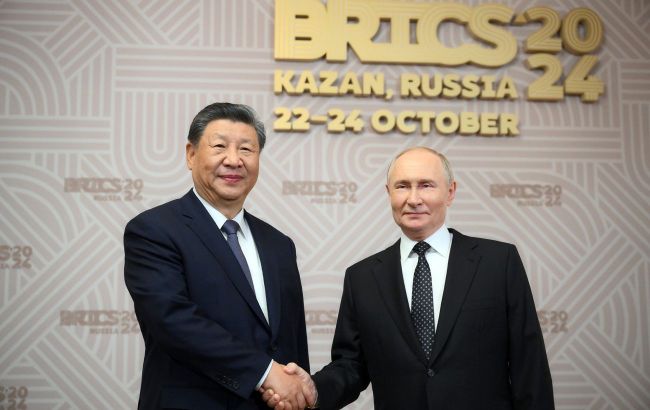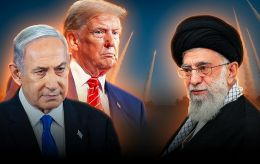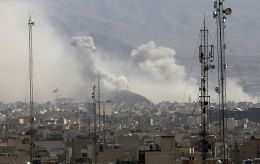BRICS summit: What's on the agenda and will Putin push for 'talks' with Ukraine?
 Photo: Chinese leader Xi Jinping and Russian president Vladimir Putin at the BRICS summit (Getty Images)
Photo: Chinese leader Xi Jinping and Russian president Vladimir Putin at the BRICS summit (Getty Images)
The BRICS summit has opened in Kazan, Russia, hosting leaders of China, India, and a number of countries from the Global South. Vladimir Putin is expected to use it as a counterweight to the West and a demonstration that attempts to isolate Moscow are futile.
Read more about the BRICS summit, who came and who ignored Putin, and whether Ukraine is on the agenda.
Сontents
- BRICS and its member states
- Who came and who ignored
- Agenda of the BRICS summit
- Ukraine among the topics
BRICS and its member states
The BRICS is an international alliance that brings together the largest countries with emerging economies. The name was first proposed by Jim O'Neill, chairman of the American bank Goldman Sachs, back in 2001. In 2006, the idea was put into practice. At the initiative of Russian president Vladimir Putin, the leaders of Brazil, Russia, India, and China met for the first time on the sidelines of the UN General Assembly in New York.
Initially, the group was called BRIC, after the first letters of each country's name. In 2011, South Africa joined the group, so it became BRICS. It currently has 9 members. On January 1, 2024, Iran, Egypt, Ethiopia, and the United Arab Emirates joined the BRICS.
Argentina was also considering joining the BRICS, but it withdrew its application after the new president, Javier Milei, came to power. More than 40 other countries have expressed interest in joining, and 15 have applied for membership. Among them are Türkiye, Azerbaijan, Algeria, Kazakhstan, Belarus, Pakistan, and Cuba. Saudi Arabia also planned to join the BRICS but did not.
“Joining the BRICS gives, first of all, additional chances to expand economic relations with the People's Republic of China. It is also a political signal for Beijing,” Anton Hanotskyi, an expert on Asian politics at the independent think tank ADASTRA, told RBC-Ukraine.
According to him, there are two groups of countries within the BRICS. Brazil and India are against excessive enlargement. The other group, led by Russia and China, is in favor of joining others and creating an anti-Western bloc on the basis of BRICS.
“The BRICS summit in Kazan is another confirmation that the so-called Global South, or non-Western countries, not only do not support isolation but are trying to expand relations with Russia. This is beneficial to them from a pragmatic point of view - in terms of cheap oil, the economy, and some geopolitical issues,” Hanotskyi added.
Who came and who ignored
The summit in Kazan hosted 22 heads of state, including Chinese President Xi Jinping and Indian Prime Minister Narendra Modi. A large number of leaders refused to go for various reasons. For example, the presidents of Brazil, Cuba, and Serbia. Last year's BRICS summit in Johannesburg was attended by more than 30 leaders.
Modi has already met with Putin and reiterated that India was ready to contribute to the “settlement of the conflict” in Ukraine.
Xi Jinping told the Kremlin leader that “the situation in the world is in chaos,” but “Beijing's strategic partnership with Moscow is a force for stability amid the most significant changes seen in a century.”
UN Secretary-General António Guterres arrived in Russia to participate in the summit, sparking sharp criticism from Kyiv and its Western allies.
“The UN Secretary-General declined Ukraine's invitation to the first Global Peace Summit in Switzerland. However, he accepted an invitation to Kazan from war criminal Putin. This is a wrong choice that does not contribute to the peace. It only harms the reputation of the UN,” the Ukrainian Foreign Ministry said.
Lithuanian Foreign Minister Gabrielius Landsbergis also criticized the move, calling the UN Secretary-General's actions unacceptable. The UN justifies itself, calling the visit “standard and normal practice.”
Agenda of the BRICS summit
Formally, the BRICS summit opened in Kazan yesterday, October 22. But the official events began today. Russian leader Vladimir Putin intends to hold separate meetings with all the leaders, as well as with those who are not currently members of the group. In particular, with the Turkish president Recep Tayyip Erdoğan.
Despite its enlargement, the BRICS does not always offer the summit participants concrete developments. Since 2014, the BRICS New Development Bank has been operating, financing the grouping's infrastructure projects.
At this year's summit, it was planned to create a BRICS currency, abandon the US dollar, and replace the SWIFT interbank settlement system. But there are many disagreements among members on these issues. The more members are in the group, the more difficult it will be to implement such initiatives in the future.
According to Western analysts, the current BRICS summit is designed to create the illusion that Russia is not in international isolation and is supposedly one of the centers of power in the international arena.
Another goal is to ease the pressure of Western sanctions. Putin will try to convince the BRICS members to accept an alternative to the dollar for global payments.
But it is unlikely to find support, except from Iran and the DPRK. After all, other banks around the world have no problems with the global financial system and would not want to be in the same boat as Russia.
As Alina Hrytsenko, senior consultant at the National Institute for Strategic Studies, told RBC-Ukraine, BRICS is about the financial and economic global system and cultural and humanitarian cooperation. This will be on the agenda, as well as the enlargement of the group.
“China is currently playing the first fiddle in BRICS. Hence, the agenda will be determined mainly in terms of what China considers necessary and important. So, unfortunately, I don't expect to hear anything new at the summit regarding the war against Ukraine,” says Hrytsenko.
Ukraine among the topics
Earlier, Ukrainian President Volodymyr Zelenskyy said that Putin wanted to create a platform at the Kazan summit to promote Russia's vision of ending the war.
According to Hanotskyi, any potential statements of the Kremlin head about peace talks are more diplomatic curtsies towards the countries of the Global South to “satisfy their impulses around various peace plans.”
“Russia is unlikely to push anything because at the moment Moscow is not interested in peace. We see that Russian troops are advancing, and so far Moscow does not benefit from any ceasefire,” says Hanotskyi.
The expert emphasizes that the greater danger is the promotion of the Sino-Brazilian peace plan.
“There is information that the Chinese will actively, at least on the sidelines, talk about its promotion and support for their own six-point peace initiative to freeze the conflict without guarantees and security for Ukraine,” Hanotskyi added.
If the majority of BRICS members support this initiative, it will be a serious blow to President Volodymyr Zelenskyy's peace formula.
Putin will not aggressively raise the topic of war, Alina Hrytsenko believes. The expert says that he is likely to be “as diplomatic as possible.” And he will state again that the Kremlin is “ready for negotiations” and “the Ukrainian side is bad.”
According to Kremlin aide Yuri Ushakov, the BRICS countries have allegedly agreed on a common wording on Ukraine that will be included in the final declaration of the summit. He said, “this is a common position that no one has any objections to.”
The text of the declaration is expected to be released this afternoon.
Sources: exclusive comments of Anton Hanotskyi, an expert on Asian politics at the independent analytical center ADASTRA, Alina Hrytsenko, a senior consultant at the National Institute for Strategic Studies, statements by the Ministry of Foreign Affairs of Ukraine, the UN and state leaders, articles by The Telegraph, ISW, Meduza and other open sources.

